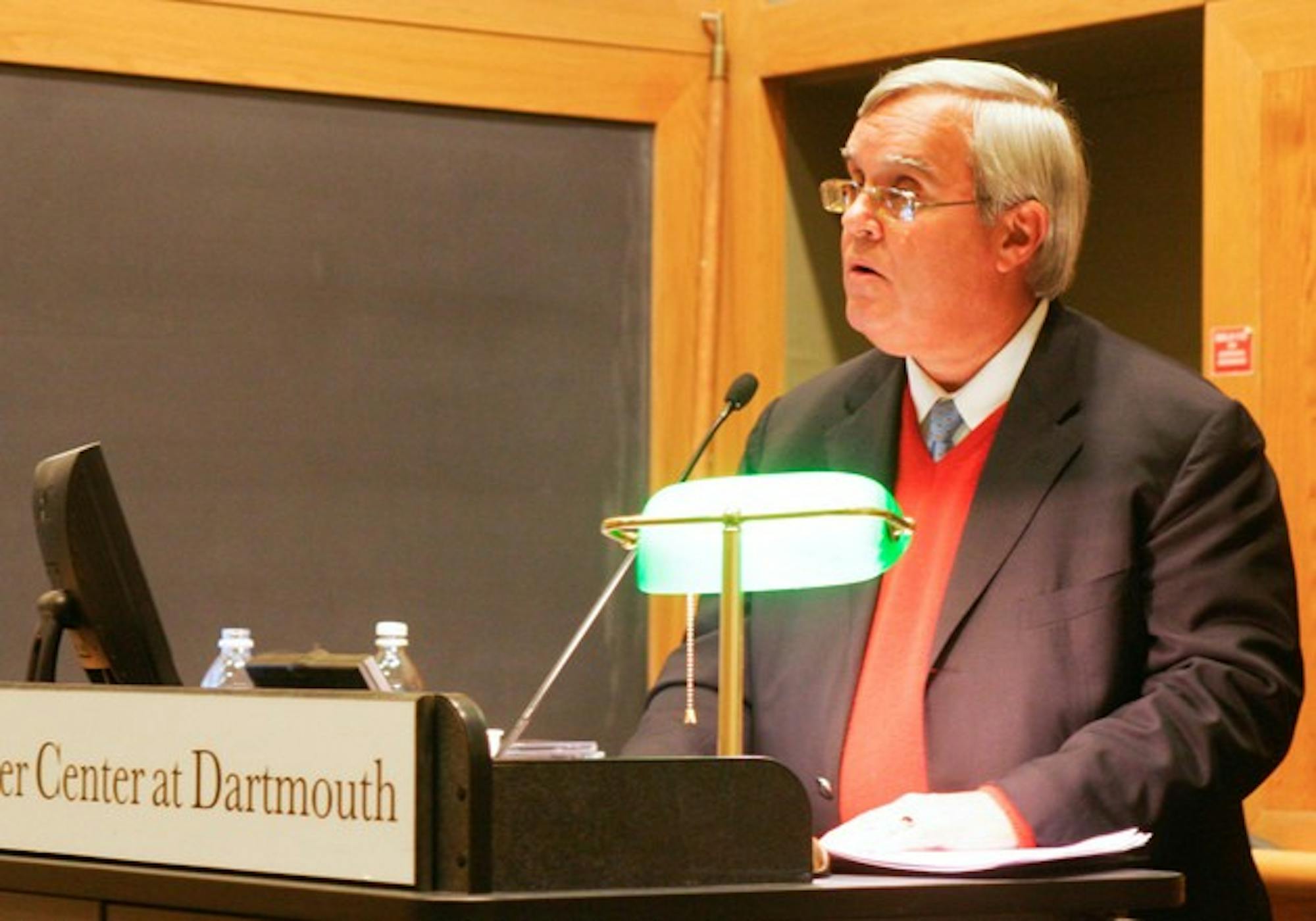Over the past three decades, Latin American literacy rates have steadily risen, the infant mortality rate is the lowest in the world's developing regions, and, due to improved education for women, the birth rate is now under control, Cason said. He added that increased international involvement is one of the major signs of Latin American development.
"I drove from Washington to El Salvador in the 1970s," Cason said. "After airline deregulation in 1978, U.S.-Latin America air traffic is the fastest in the world -- there used to be seven airlines flying to the region, now there are over thirty."
But countries in the region must continue to work to bridge the education gap between the rich and the poor, Cason said. Latin American governments are hindering their own growth by pouring money into the education of a small minority of rich elite, he added.
"Governments overspend on universities for the urban elite, but there is no good basic education for the rural population," Cason said. "So the poor are still excluded from government, and yet you see shopping centers for the elite in Latin America that make ours look like nothing."
Latin American nations have dedicated their resources to training the wealthy, instead of investing in its human capital, he said.
"I mostly worry about the dearth of scientific research in the region," he said. "Latins are falling behind the rest of the world -- not a single university in the region is in the world's top 100, and only three universities are in the top 200."
Cason explained that many of the issues arise from a lack of regional and international awareness, adding that only Brazil, Mexico and Venezuela aspire to be leaders in the region, he said.
"In general, Latin American countries don't want to play global roles," he said. "They don't want to be leaders, but improve their own neck of woods through development, building infrastructure and communication."
Using Uruguay as an example, Cason said that a domestic approach to development can be appropriate if the country follows good governance principles -- even if, as in Uruguay's case, a far-left coalition is in power.
"[Uruguay is] implementing free-market economics, there is a very educated and reasonable middle-class society, and now it's one of the safest places to live," he said. "They have been democratic from the very early days and they're with it, they get it."
Cason, who majored in Latin American studies while at Dartmouth, was a Fulbright Scholar in Uruguay before entering the U.S. foreign service. Over the course of his career, Cason has acted as Chief of Mission at the U.S. Interests Section in Havana and has served on U.S. missions in El Salvador, Bolivia, Panama, Uruguay, Italy, Venezuela and Portugal.
Upon assuming his ambassadorship in Paraguay, Cason learned Guarani, the native language. Although he had no previous musical experience and had never played an instrument, Cason recorded several compilations of Guarani songs, and has received a great deal of air time on Paraguayan radio stations, making him something of a local celebrity, according to the BBC.
"I am told he is something of a sensation in Paraguay," said Andrew Samwick, director of the Rockefeller Center, in his introduction. "He has taken a creative approach to mastering the native language, and is known as much for his musical as for his diplomatic talents."
Cason played a recording for the audience of an original song he wrote in Guarani, called "Field of Promises." The proceeds from his CDs go towards projects that help Paraguayan children learn English.
"If kids learn English, they are less likely to become populist," he said. "It gives them a whole new world outlook, and they will get a good job and be a friend to us."
The lecture concluded the Rockefeller Center's Nelson A. Rockefeller Centennial Series, which honors the former U.S. vice president for his contributions to society.




